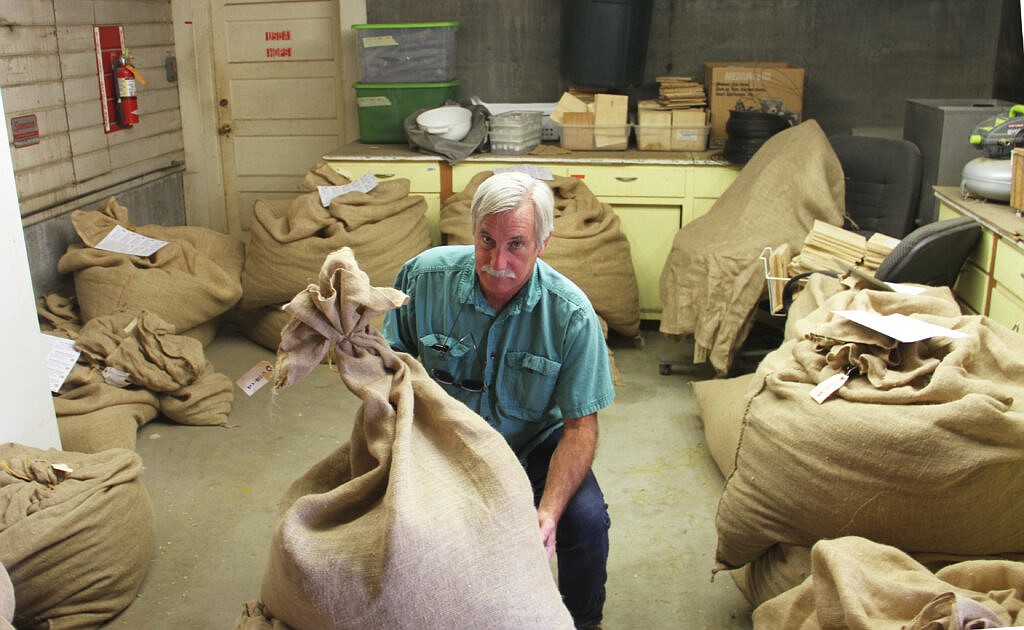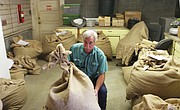Better hops, better beer
| January 16, 2022 1:00 AM
PROSSER – Good hops make good beer; so, when hops improve, so does beer.
To help with that improvement, Washington State University is leading a new four-year, $4.8 million grant to advance hops and help hop growers.
“The Pacific Northwest produces nearly 40% of the world’s hops,” said Doug Walsh, the grant lead and professor in WSU’s Department of Entomology with an appointment in WSU Extension. “Washington itself produces almost as much hops as Germany now.”
That level of industry needs protection from disease, pests, and viruses. That’s where the new USDA National Institute of Food and Agriculture Specialty Crop Research Initiative grant comes in. USDA-NIFA chose this program, in part, to help develop disease and pest resistant hops that can be grown more sustainably.
“This is a big project with a big team with big goals to protect this valuable crop,” Walsh said.
The first objective for the team is breeding new varieties that are naturally resistant to key viruses. Last year, the USDA’s Agricultural Research Service hired a new hops breeder Kayla Altendorf. She’s part of this new grant and based, like Walsh, out of WSU’s Irrigated Agriculture Research and Extension Center.
Altendorf’s pest resistance research at WSU IAREC will be in collaboration with WSU virologist Scott Harper for viruses and with Walsh for spider mites.
The team has several objectives under the grant. One project involves analyzing more than a decade’s worth of data gathered from a hop cooperative to find optimum results.
“We have years of watering and pesticide data, so we’ll go through the database to see what inputs contributed to having better hops at the end of the day,” Walsh said.
That project will come out of an analytics partnership at Oregon State University.
The hops industry is also interested in biocontrols, or predatory insects that feed on damaging insects, such as spider mites. Walsh will work with a colleague at the University of Idaho to see what biocontrols work best.
Biocontrols have multiple benefits for hops growers, Walsh said. The craft beer market is also growing in many European countries.
“Resistance is building up in spider mites to common miticides,” he said. “But also, growers in the Pacific Northwest are exporting more hops to the European Union, which has different regulations compared to the U.S. To meet E.U. residue requirements, our growers need to use fewer pesticides. They have to adhere to rules here and in the E.U., and biocontrols can help do that.”
Tom Marsh, professor in WSU’s School of Economic Sciences, will complete studies on craft beer, especially consumers’ willingness to pay more for beers when brewers’ input costs, including hops, are increased because growers and brewers adopt more sustainable production practices.
Lena Le, director of the WSU Social and Economics Sciences Research Center, will complete surveys to measure hop grower behavior change and the overall impact of this grant.
Northwest hops growers have made the craft beer boom in the U.S. possible, and they want to do the same in other countries. Brewers love the hops grown in this region, and this grant will help sustain that momentum for years to come.




